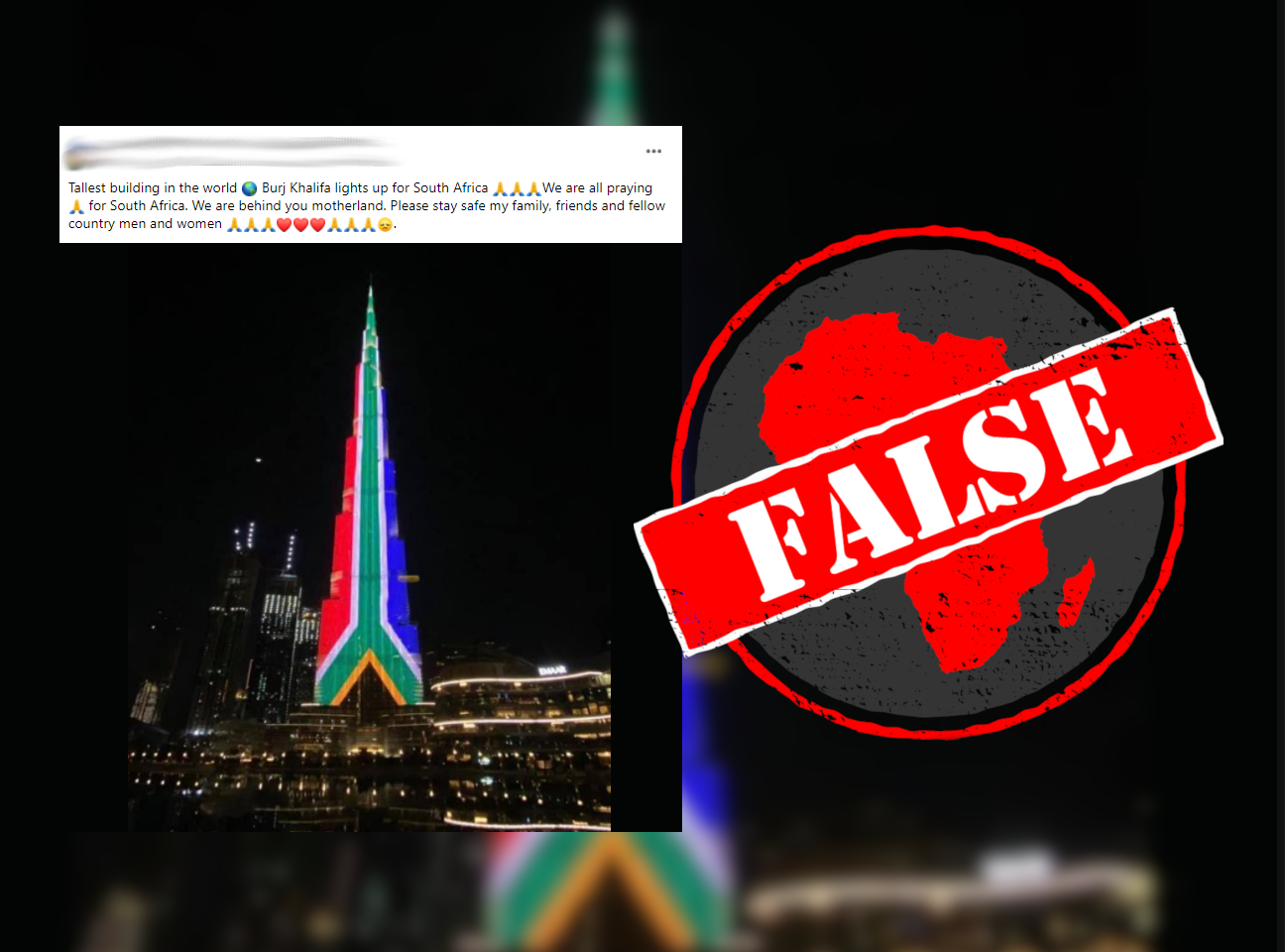A photo of the Burj Khalifa, the world’s tallest building, lit up with the colours of the South African flag has been shared on Facebook.
The skyscraper is in Dubai in the United Arab Emirates. The photo was shared with the caption: “Burj Khalifa lights up for South Africa. We are all praying for South Africa.”
The same photo is also circulating on Twitter with a similar caption and the hashtag #SouthAfricaIsBurning.
Protests broke out in the South African provinces of KwaZulu-Natal and Gauteng after former president Jacob Zuma handed himself over to serve a 15-month jail sentence on 8 July 2021.
Photos and videos of the looting, damage and violence have been shared across social media platforms tagged #SouthAfricaIsBurning and #ShutdownSA.
But was the Burj Khalifa lit up with the South African flag in response to current protests?

Freedom Day 2020
A Google search of “Burj Khalifa South African flag” revealed many news reports and a South African Dubai consulate record that confirm the photo was taken when to mark the South African national holiday Freedom Day in 2020.
Freedom Day is celebrated on 27 April and marks the first democratic election held in South Africa in 1994.
The photo of the Burj Khalifa is not from 2021 and unrelated to recent South African protests.
Republish our content for free
For publishers: what to do if your post is rated false
A fact-checker has rated your Facebook or Instagram post as “false”, “altered”, “partly false” or “missing context”. This could have serious consequences. What do you do?
Click on our guide for the steps you should follow.
Publishers guideAfrica Check teams up with Facebook
Africa Check is a partner in Meta's third-party fact-checking programme to help stop the spread of false information on social media.
The content we rate as “false” will be downgraded on Facebook and Instagram. This means fewer people will see it.
You can also help identify false information on Facebook. This guide explains how.


Add new comment